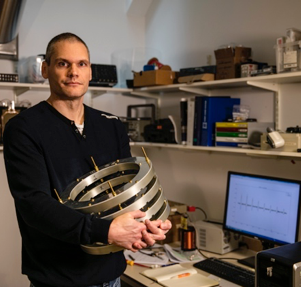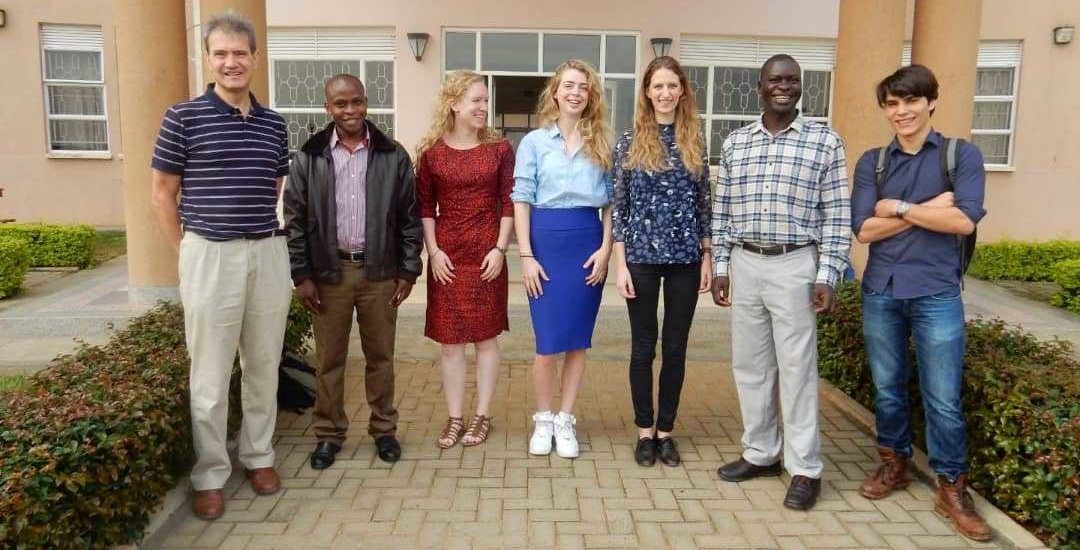It is estimated that every year more than 100,000 infants develop hydrocephalus in sub-Saharan Africa. Many of these children are poorly treated due to lack of diagnostic tools, resulting in severe brain damage and ultimately death. In order to provide a sustainable medical imaging device we are developing an inexpensive and easy-to-use MRI system that is of sufficient quality to manage its surgical - and follow-up treatment. We use permanent magnets, off-the-shelf electronic components, and public domain software to construct a sustainable device that costs on the order of 50,000 EURO compared to several million euros for a conventional multipurpose whole-body MRI.
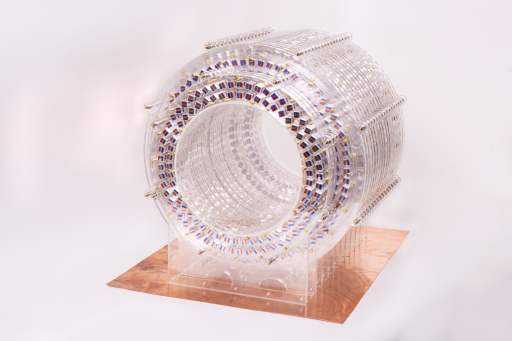
A first prototype scanner based on a Halbach array of permanent magnets has been finished and some low resolution images have been produced. One of the main problems with this design is that there are unknown variations in the field strengths of the (inexpensive) individual magnets. To overcome this problem LUMC has made a new design of the Halbach array. This design is intrinsically more homogenous and, because it uses many more magnets, unwanted variations in the fields of the individual magnets are better averaged out. This new design has resulted in a leap in quality of the acquired image. The current research focusses on the one hand on improving the image reconstruction algorithms and on the other hand on improving the hardware.
The next step in the project is the replication of one of the scanners at Mbarara University of Science and Technology (MUST), Uganda. In preparation of this, lab space at MUST has been created. Also, joint research between the groups at MUST and in the Netherlands are taking shape through a jointly supervised PhD project at MUST. Furthermore, two Delft students have paid a ten-week visit to MUST during which they performed research on all aspects that may influence the production, introduction and acceptance of a low-field MRI device.
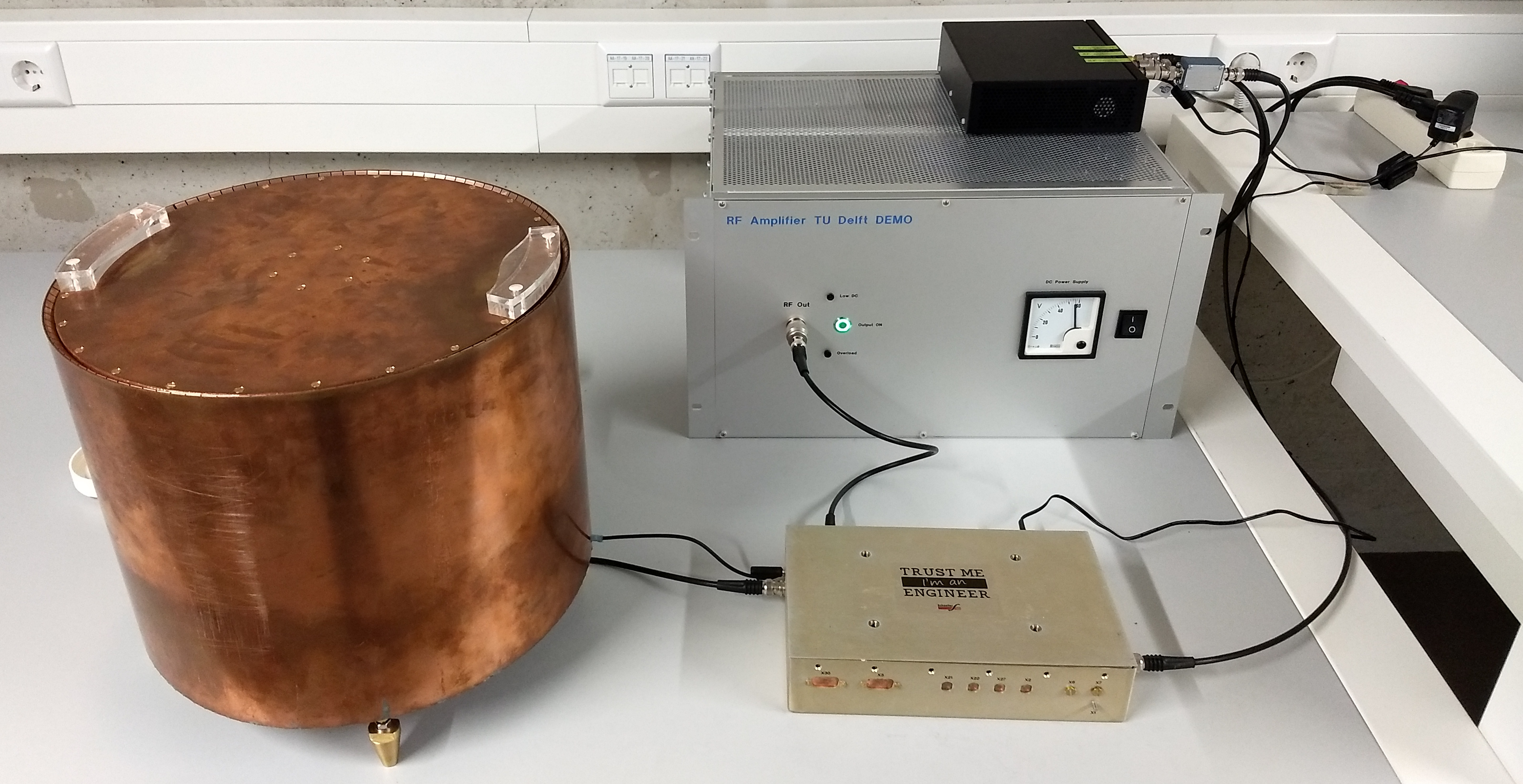
An inexpensive and sustainable MRI system to diagnose hydrocephalus in developing countries
Contributors
Leiden University Medical Center

Pennsylvania State University

Mbarara University of Science and Technology
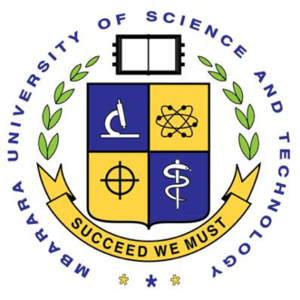
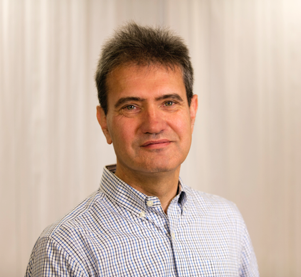
Dr. Ir. Martin van Gijzen
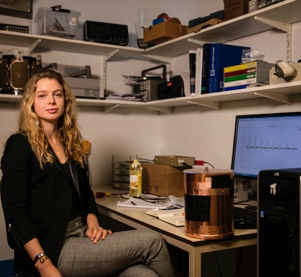
ir. Merel de Leeuw den Bouter

Dr. ir. R.F. Remis
